Here is supporting article to the diagram in my recent post on ear shape as an influence on
dog ear infections.
In general terms, if you can see down the ear without having to lift it up (and that also means not too much hair) then the ear will be less prone to infections.
Of course, thinks like allergies and other skin problems, swimming, dirt and grass seeds can all change this.
Dog Ear Types
There are a variety of different ear shapes and sizes in the canine world. Here are some of the basics with brief descriptions and examples of breeds with each ear shape.
Bat Ear
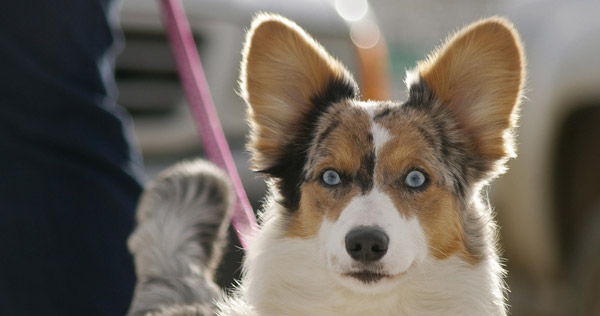
Large in proportion to the head & upright.
Example of breeds with bat ears: Chihuahua & Cardigan Welsh Corgi
Blunt-Tipped or Round-Tipped Ears
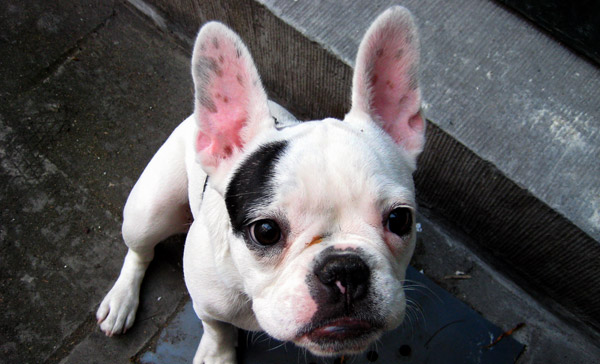
Large, upright ears with blunted or rounded tips.
Example of breeds with blunt-tipped ears: Chow Chow & French Bulldog
Button Ear
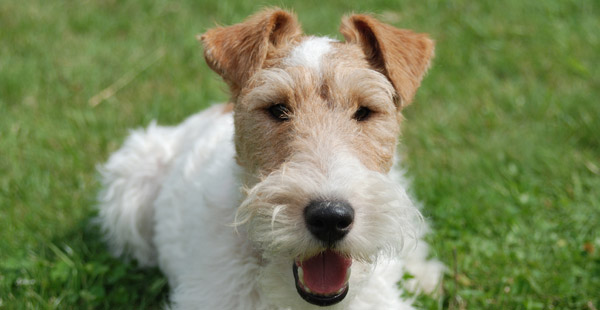
A small semi-erect ear with a front flap that folds forward nearly to the skull obscuring most of the ear canal.
Example of breeds with button ears: Jack Russell Terrier & Fox Terrier
Candle Flame Ear

Specific ear type of the English Toy Terrier breed.
Cocked or Semi-Cropped or Semi-Prick Ear

An upright prick ear that folds over slightly at the tip.
Examples of breeds with semiprick ears: Rough Collie & Pitbull
Cropped Ear
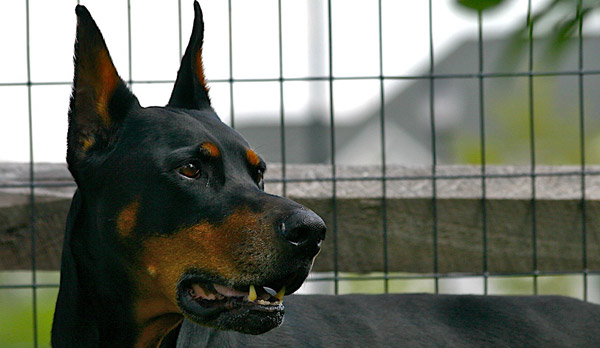
Created by surgically cropping them shortly after birth so they stand up straight. (This is cosmetic surgery)
Example of breeds often found with cropped ears: Doberman & Great Dane
Drop or Pendant Ear
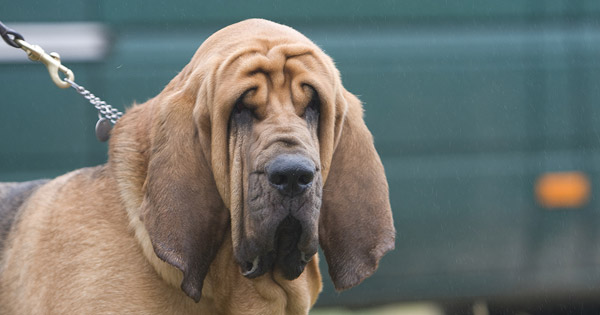
Can be expressed in a variety of shapes & lengths and specifies only that the ear hang down from their junction with the side of the head.
Examples of breeds with drop ears: Basset Hound & Skye Terrier
Filbert-Shaped Ear
Because dogs with lop or floppy ears are much more prone to
ear infections than dogs with upright ears, its worth looking at the shape of your dogs ears when assessing their need for cleaning and attention (although all dogs ears need attention). Â Its also worth considering a dogs ear shape when buying a dog, taking into account the climate you live in and their lifestyle.
This article has a great diagram of all the different dog ear shapes.
Dog Ear Shape Cheat Sheet
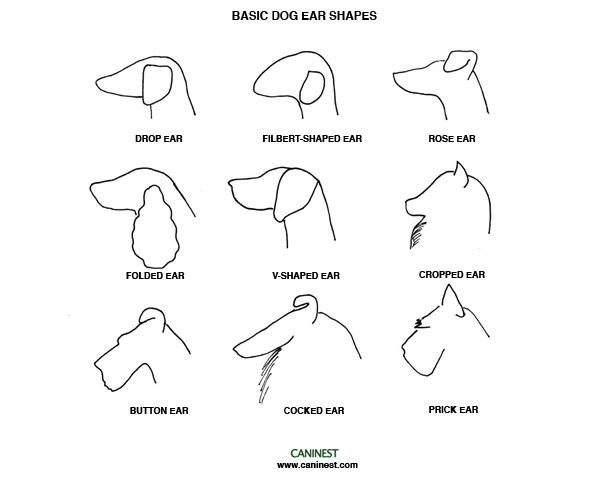
*Click image for a larger view
Recently we did a post about the different ear shapes found in dog breeds, then decided to put together a cheat sheet for those who want to be able to identify ear shapes on the fly.
Feedback is always appreciated from those who know their ears. 
_______________
Great picture, isn’t it. Â What shape are your dogs ears?
While any dog can get an ear infection, these problems are much more common in some breeds than others.
Common predisposing factors include floppy ears, hairy ears, skin problems such as allergies, oily or dry skin, and dogs which swim
These include:
- Dogs with long, floppy ears: eg Cocker spaniels, Bassets, Beagles, Great danes, Weimeranas
- Dogs with hairy ear canals: eg Poodles, Shih-Tzus, Briards
- Dogs with allergies like atopy: West Highland White terriers and many other terriers, bull terriers, boxers
- Dogs which swim compulsively: eg Labrador retriever, newfoundland, Irish Water Spaniel
If you are in a humid climate, or the dog will live outside in hot weather, these breeds are even more sensitive. Â In some cases eg. Cocker Spaniels, several of these factors combine (long floppy ears, hairy ears, allergies, swimming, scaly skin) to cause severe problems in many individuals. Â make sure you check with your vet how to prevent these problems if you have a breed which is prone to these problems (or read on at
Dog Ear Infections).
This video doesn’t feature any demos, but the vet gives a good description how to use smell and examination to identify an ear infection. Â He also discusses common causes of ear infection.
This video gives great insight into the surprising shape of the dogs ear canal and explains why a vet visit is so important to rule out problems deep in the ear. Â The ear cleaning demo is good too
How to clean your dogs ears.
Ear infections are largely preventable. Â I recommend cleaning your dogs ears after a bath or a swim or every 1-4 weeks, depending how dirty your dog’s ears get.
This is a fun video and suggests the use of Epi-Otic, my preferred ear cleaning solution. Â One thing I like about this video is the emphasis on making the whole experience positive for the dog.
Welcome to WordPress.com. This is your first post. Edit or delete it and start blogging!
![]()









没有评论:
发表评论